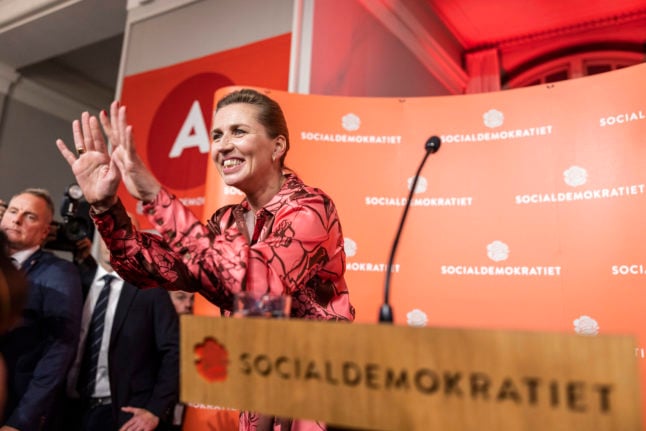The poll, publish on Monday by institute Voxmeter on behalf of news wire Ritzau, places the Social Democrats on 22.8 points. That is some 4.7 points less than the party’s vote share at the election on November 1st.
The Social Democrats took 50 of parliament’s 179 seats at the election, making them comfortably the largest party in parliament. That number would be cut to 40 seats with Monday’s poll numbers.
The opinion poll result is meanwhile the lowest the party has had since January 2015, when it was in government under former leader Helle Thorning-Schmidt.
The poll carries a statistic uncertainty level of 2.6 percent.
The two other parties in the coalition government, the centrist Moderates and centre-right Liberal (Venstre) party, also suffer in the poll but to a lesser degree.
The Liberals have 11.5 percent or 20 seats according to the poll, with the Moderates at 8 percent or 14 seats.
The three parties have a combined 89 seats in parliament, but the poll would reduce them to 74 seats and mean they would no longer have the basis for a majority government.
A key challenge for the government currently is its unpopular plan to abolish the Great Prayer Day (Store Bededag) public holiday, in a move it says will enable increased spending in defence to meet Nato targets ahead of the current schedule.
The policy has met with criticism from trade unions, the church and opposition parties, while the military itself has also distanced itself from the plan.
READ ALSO: Danish economists say abolition of Great Prayer Day is ‘not necessary’
As of Monday, a petition against scrapping the holiday had been signed just under 450,000 times.
A demonstration against the government’s bill to abolish the holiday is planned to take place next Sunday in Copenhagen.
While the government has seen poll numbers suffer, opposition parties have made headway.
Ny meningsmåling fra @voxmeter.
Laveste tilslutning i 8 år til @Spolitik, der får 22,8 %.@venstredk får 11,5 % og ligger dermed på samme niveau som i de sidste par målinger.@SFpolitik 13,5%@LiberalAlliance 10,6%@partietDD 8,3%@moderaterne_dk 8%@Enhedslisten 6,7%#dkpol pic.twitter.com/d1Y2SJIyj6
— Anna Midtgaard Christensen (@Annamidtgaard) January 30, 2023
The centre-left Socialist People’s Party (SF) is now at 13.5 percent after going into opposition after the election. That makes SF the second-largest party in Denmark according to the poll.
Libertarian party Liberal Alliance moves up to 10.6 percent, almost 3 points more than its election result.
The far-right Nye Borgerlige party falls to 2.5 percent following an internal power struggle.
The poll is based on responses from 1004 representative voters aged 18 or over.



 Please whitelist us to continue reading.
Please whitelist us to continue reading.
Member comments